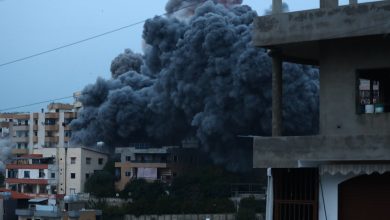Amidst ongoing discussions in Washington and the UN Security Council regarding the next phase of the ceasefire and prisoner exchange agreement, Israeli Prime Minister Benjamin Netanyahu and Chief of Staff Aviv Kochavi have raised the specter of renewed military operations in the Gaza Strip.
Netanyahu, in statements reported by Israeli media, stated that he doesn’t know “how long the ceasefire will last,” emphasizing that Israel “cannot abandon the stage of making Gaza a demilitarized zone.” He indicated that this condition would be discussed within the security cabinet.
These statements coincide with reports suggesting Netanyahu is linking the transition to the agreement’s second phase to the commencement of a process aimed at disarming resistance factions, despite the bodies of three Israeli captives remaining within the Strip. This development signals a potential Israeli intention to reopen the door to military action.
According to sources, Netanyahu is setting preconditions for the international community and the United States, presenting the demilitarization of Gaza as a mandatory prerequisite for any progress in the agreement’s terms.
Similarly, Kochavi asserted that “Hamas’s rule will not last, even if it takes time,” and that the army is preparing for a “broad offensive” to occupy areas beyond the “yellow line” – those from which it withdrew during the recent redeployment.
The Times of Israel quoted Kochavi as saying, during a field tour in Rafah, southern Gaza, that the army is working to control “strategic terrain and access points to Gaza” to prevent Hamas from regrouping.
The “yellow line” separates the part of Gaza controlled by Hamas from a buffer zone controlled by the Israeli army, representing a significant portion of the Strip’s area. It is marked on the ground by yellow concrete blocks.
These statements suggest that Netanyahu and Kochavi are attempting to prepare both the international and Israeli communities for the possibility of a return to war, by linking the political and security track to the demand for disarmament. Tel Aviv is also reportedly expressing objections and reservations regarding certain aspects of the agreement.




